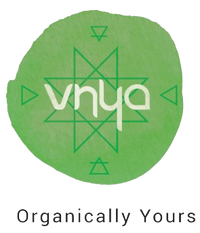The Sweet Journey of Honey: From Nature to Your Table
Honey, the golden elixir cherished for centuries, is far more than just a sweetener. It’s a testament to the tireless work of bees and the wonders of nature. But how is honey made? What makes it so special? Ahy does the way we collect it matter? Let’s explore the fascinating journey of honey from flower to jar, including the ethical considerations behind its production.
What Is Honey?
Honey is a natural, viscous substance produced by honeybees from the nectar of flowers. It’s more than just food for bees—honey is their primary energy source, essential for survival, especially during colder months when nectar is scarce.
For humans, honey is a powerhouse of nutrients, antioxidants, and enzymes, making it both a delicious treat and a healing remedy.
How Is Honey Made in Nature?
- Nectar Collection: Worker bees collect nectar from flowers using their long, tube-like tongues. They store it in a special stomach called the "honey stomach."
- Transformation in the Hive: Once back at the hive, bees pass the nectar to other worker bees through regurgitation. This process adds enzymes that break down the nectar’s sugars into simpler forms, creating honey.
- Evaporation and Storage: The bees fan the nectar with their wings to reduce its moisture content. Once it reaches the right consistency, they store it in honeycomb cells and seal it with beeswax to preserve it.
How Is Honey Collected?
Traditional and Ethical Practices
In India, traditional beekeepers and tribes have long practiced ethical honey harvesting, ensuring minimal harm to bees and their hives. Methods include:
- Using Bee Boxes: Modern beekeeping involves placing bee boxes near flowering plants. Once honey is ready, only the surplus is collected, leaving enough for the bees to thrive.
- Smokeless Harvesting: Avoiding the use of smoke prevents distressing the bees.
- Seasonal Harvesting: Collecting honey only after ensuring that the hive has enough reserves for itself.
Unethical Practices
Unfortunately, commercial pressures have led to harmful practices, such as:
- Overharvesting: Taking all the honey from the hive, leaving bees without their primary food source.
- Killing Bees: Some unethical methods involve killing entire hives to harvest honey cheaply.
- Adulteration: Diluting honey with sugar syrups or other additives to increase yield.
Why Ethical Honey Matters
- Environmental Impact: Bees are vital pollinators, and their survival directly affects food security and biodiversity. Ethical beekeeping ensures that bee populations remain healthy and sustainable.
- Quality and Purity: Ethically harvested honey is free from chemicals and contaminants, retaining its natural goodness.
- Support for Local Communities: Buying ethically produced honey supports traditional beekeepers and tribal communities who depend on sustainable harvesting for their livelihood.
India’s Rich Honey Heritage
India is home to diverse honey varieties, each reflecting the unique flora of its regions:
- The Nilgiris offer wild honey harvested by indigenous tribes.
- In the Sundarbans, Mangrove honey is collected sustainably from bee colonies amidst the mangrove forests.
- Himachal Pradesh and Uttarakhand are known for their pure, raw, and unfiltered honey collected from wildflowers and medicinal plants.
Vnya’s Promise
At Vnya, we are committed to offering ethically sourced honey that honors both nature and the hardworking bees. We partner with local beekeepers and communities to ensure that every jar of honey reflects sustainability and authenticity.
When you choose Vnya, you choose more than just honey—you choose to support a world where nature and humanity thrive together.
Stay tuned for our next post, where we’ll explore the difference between monofloral and multiflora honey.
